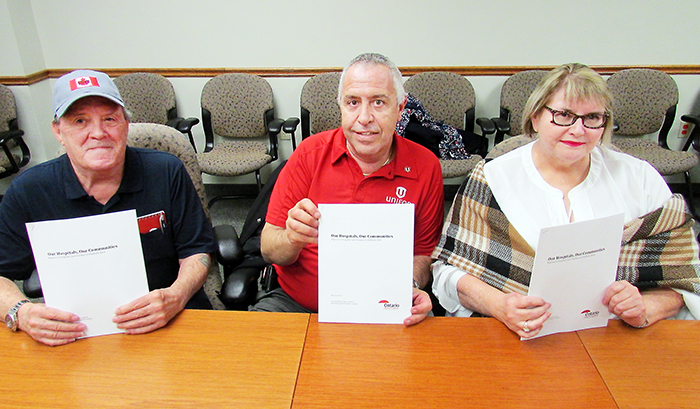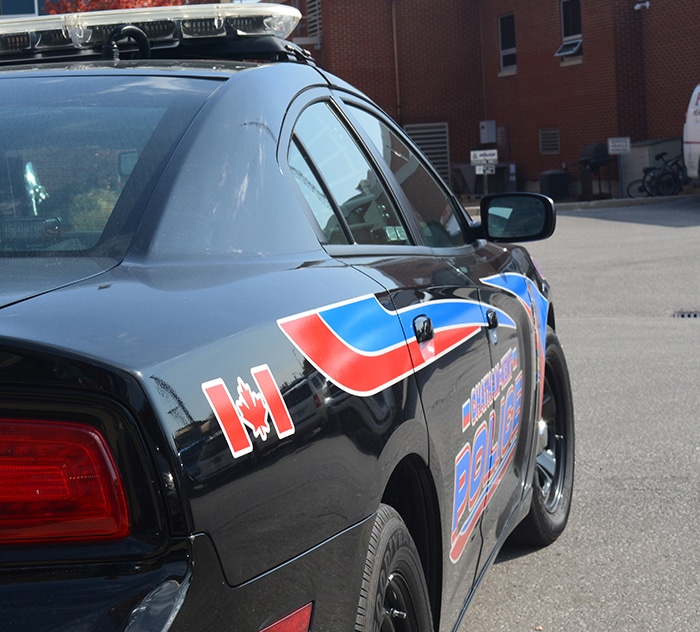
Access to services locally, wait times for emergency services and specialists, and a lack of adequate funding to health care are the three main topics that have some people in Chatham-Kent concerned, according to a recent survey.
>
The Chatham-Kent Health Coalition, with the Wallaceburg-Walpole Island First Nation Health Coalition released Monday the results of a survey they sent out to the community at large. Shirley Roebuck, co-chair of the coalition, said she was pleased that 370 people took the time to fill out the survey.
“We distributed surveys all over Chatham-Kent,” Roebuck said. “We had them at numerous places including the Active Lifestyle Centre, doctors’ offices and online.
“We took that data and with some volunteers, we were able to create statistics from the answers that were given to our survey questions and so we can create for the public clear answers as to what the people of Chatham-Kent think are important and required for local health-care services,” Roebuck explained.
In the report on the survey results, the Coalition stated that, to date, “There has been little opportunity, if any, for residents of the hospitals’ catchment area to give meaningful input into decisions regarding the future of their local hospital services,” and the group is “deeply concerned about service cuts and lack of democratic public input and accountability in our local hospitals.”
The survey results indicate that about 33 per cent of respondents from the Chatham area had to travel outside of their home community to access the care they needed, and 44 per cent from Wallaceburg. More than half of Chatham residents who responded (52 per cent) said they had long waits for emergency care, diagnostic tests and surgeries in Chatham and in other communities (London, Sarnia, Windsor).
“When asked to provide details about difficulties accessing care, respondents from the Wallaceburg area named travel as their first difficulty, and Chatham respondents cited long wait times as their main difficulty,” the report stated.
The positive side of the responses is that 79 per cent of Wallaceburg survey participants and 71 per cent of Chatham respondents reported having a good or positive experience, and many relayed personal stories about high quality and compassionate care.
“By us doing this report, we have given the public its first opportunity to tell the people that are in charge of re-organizing our services here what is required,” Roebuck said, adding that the report will be sent to the Chatham-Kent Health Alliance administration, as well as the Ministry of Health, and Premier Kathleen Wynne.
“We need to stop having the services cut here in Chatham,” said Coalition co-chair Rick MacLean. “They say they want Chatham as a retirement-style community and yet they cut a department like urology and in my opinion, when you become older, urology is a more important department to have.”
Roebuck agreed that Chatham-Kent is an aging community, and many people don’t have the financial resources or the physical stamina in some cases to be traveling out of town to access services.
“I know that the CKHA is in a deficit position but that situation has to be remedied by the powers that be – the provincial government,” Roebuck said. “We are an aging community of 110,000 residents so why do I not hear any of our leaders talking about celebrating the aging community? They have a lot of money to spend, they are living longer and they are a vital part of our community, and we should be celebrating their achievements and recognizing their needs like a urology department, or programs that will allow seniors to stay in their homes longer rather than be pushed out into a nursing home facility.”
Roebuck said the responses from Wallaceburg and area were all in favour of the community having a hospital with an emergency room and restored services, and that wasn’t surprising, but the Chatham responses were unexpected.
“Almost 100 per cent of respondents from Chatham and the surrounding area supported the need for a Wallaceburg hospital. We are no longer two communities, we are the community of Chatham-Kent and the respondents overwhelmingly told us they need two campuses,” she noted.
The question of where the money will come from to restore service levels is one the Coalition said needs to be addressed by the provincial government and the CKHA.
“Stop giving tax breaks to large corporations and channel that money into health care,” Roebuck said, whose statement was seconded by MacLean.
“I understand that without corporations, nobody is going to be working, but giving them the tax breaks over and over, all that is doing is downloading the costs onto the citizens themselves. They can only pay for so much; they are already taxed beyond belief,” MacLean said.
MacLean referenced the Canada Health Accord, that dictates the amount of support the federal government gives to provinces, which used to be six per cent and may be decreasing even further.





